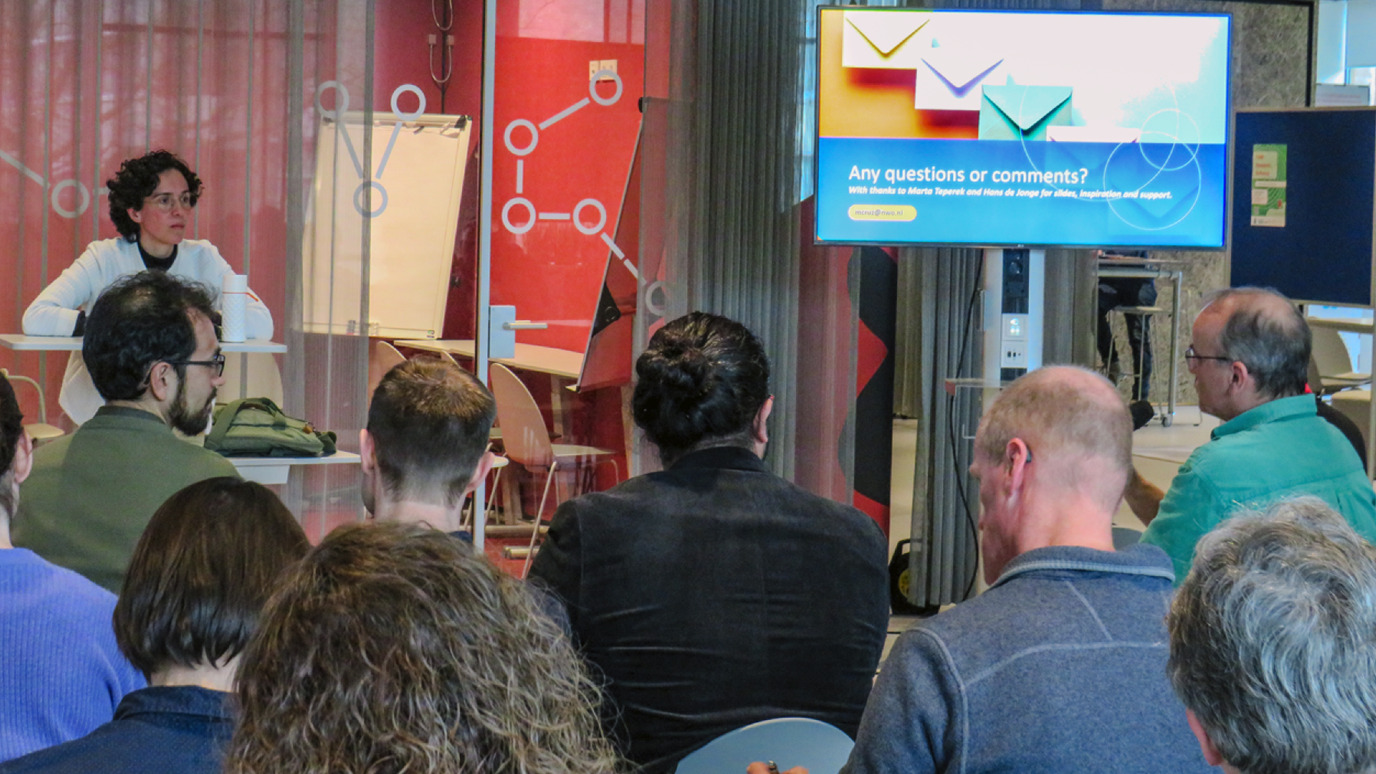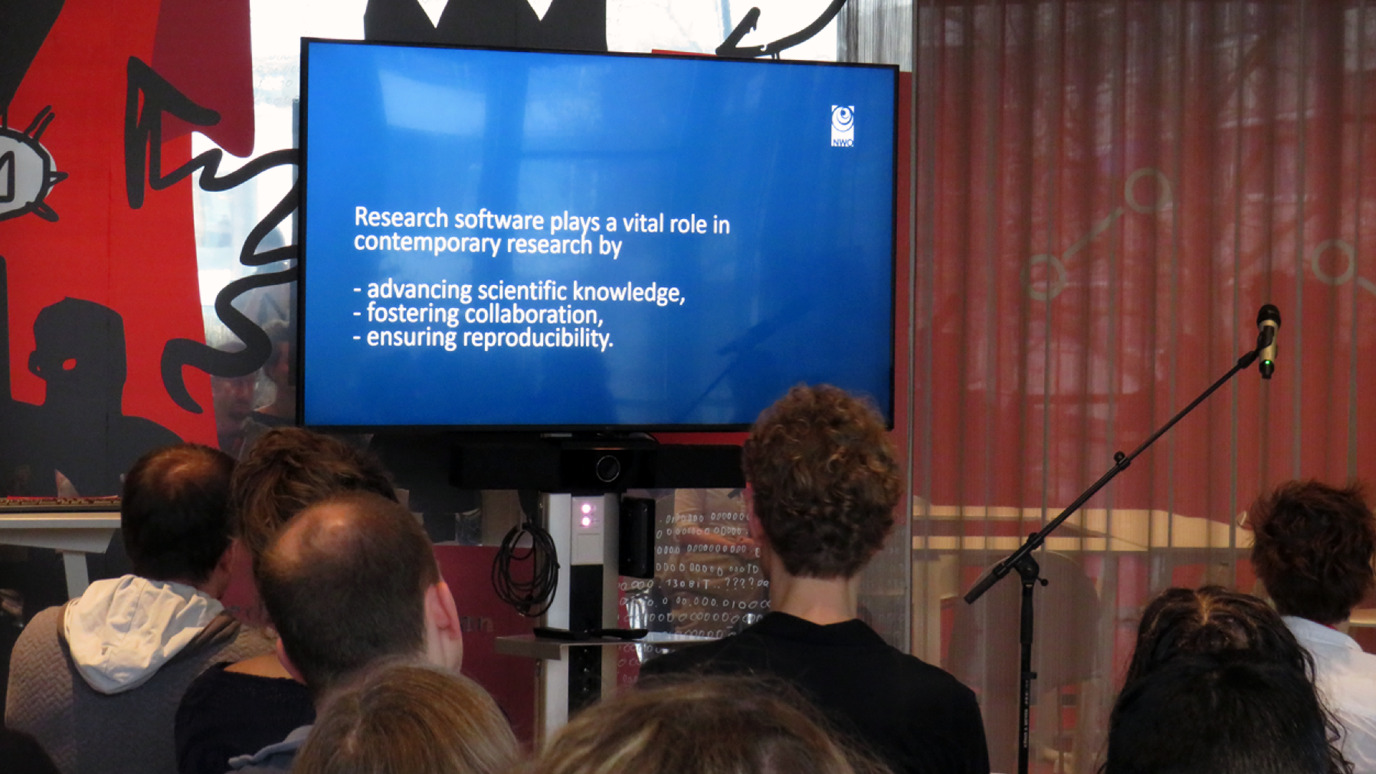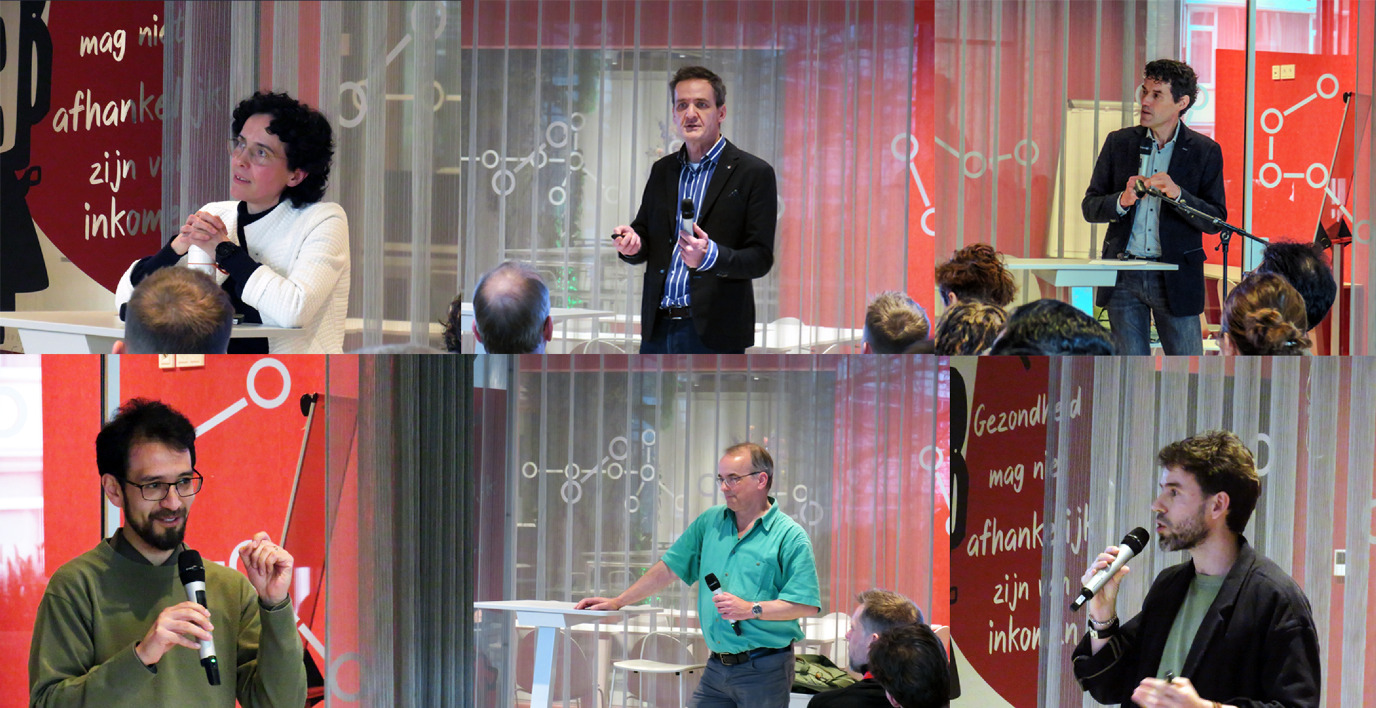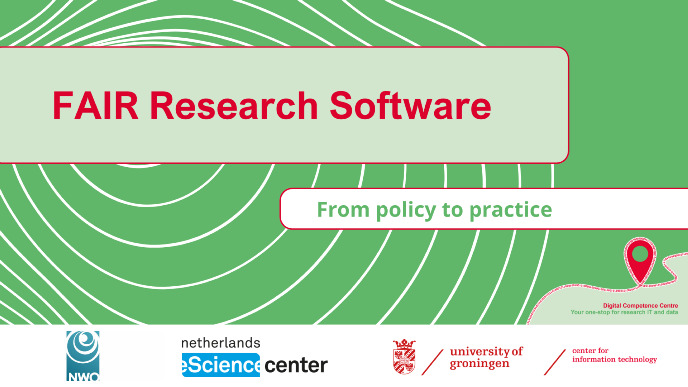DCC Event Recap - FAIR Research Software: from policy to practice
In recent years, there has been a significant movement within national and international research communities to recognize the importance of research software. On 05 March, 2024 we held our event "FAIR Research Software: from policy to practice", facilitating a gathering of NWO and eScience Center representatives, along with UG researchers to address their unique challenges and perspectives.

Research software is a scientific output developed during a research process, or for a research purpose. Unlike data, research software requires maintenance which is only possible by human involvement. On the other hand, to make research software comply with FAIR principles and Open Science Framework, one needs to apply software development and maintenance competencies. This raises questions about researchers' needs for software development and funder expectations
To address these, on March 5th, the DCC organized the event 'FAIR Research Software: From policy to practice'. The first session focused on the perspective and solutions of the NWO and the Netherlands eScience Center, and the second focused on specific research cases, with the moderation of the event by Dr. Burcu Beygu.

Prof. dr. Ronald Stolk, director of the Center for Information Technology (CIT) and CIO of the University of Groningen initiated the first session by introducing the services that the CIT has to offer to facilitate the path towards FAIR and open research software, as the CIT was one of the first signatories of the ADORE.Software Declaration.
Maria Cruz, NWO programme leader of open research software, gave an update on the Open Science NL program launched in 2023, which has 20 million euros allocated to accelerate the transition. As part of this program, 6 million euros are allocated to fund 24 research software projects. Other highlights from her talk were: More organizations such as the ZinMw and the CIT signed the Amsterdam Declaration on Funding Research Software. NWO expects research data management plans to address the accessibility of software, as 84% of the research projects awarded within the NWO Open Science Fund included software development and the need for software policies.
Carlos Martinez-Ortiz, community manager at the Netherlands eScience Center, emphasized the importance of training and community building to help researchers comply with FAIR research software. In addition, he emphasized that infrastructure that provides supporting tools and policies that encourage implementation are the essentials to changing the research practice.

The event also featured presentations on ongoing research software projects developed at the Bernoulli Institute and in the Department of Experimental Psychology, where speakers elaborated on their challenges and needs to continue developing and sustaining their software.
Dr. Michael Wilkinson talked about how the ever-increasing imaging data from different fields from Astronomy to Archeology led to the ParMaLib project which, among others, aims to reduce development time and energy use, to support both 2D and 3D data and to be interoperable with platforms such as OpenCV, MatLab and Python.
Sebastiaan Mathot gave a very clear picture of why it is hard to build sustainable open-source scientific software. He discussed the role of universities and funders if they want researchers to produce FAIR research software and emphasized the urgent need for direct investment in maintenance.
Andrea Capiluppi talked about the difficulties of accessing, reusing, and reproducing past research software (projects). He addressed this issue as knowledge sharing for researchers from the perspective of extracting, indexing, and listing replication packages. He explained why identifying, retrieving and listing are doable tasks for most of the domains but assessing the package quality is the real challenge.
The common conclusion that all speakers agreed upon is the fact that research software requires investment in human resources if we want to comply with FAIR principles and the Open Science framework.

| Last modified: | 04 October 2024 12.16 p.m. |
More news
-
15 April 2025
How to deal with the datafication of our society?
Our data usage is at an all-time high. But concerns regarding our online presence are on the rise. Who governs the spaces we access online and how do they do this? How can government regulations help manage the consequences of their decisions for the...
-
05 March 2025
Women in Science
The UG celebrates International Women’s Day with a special photo series: Women in Science.
-
07 December 2023
Representing the UG Natural and Engineering Sciences community: an interview with Andrea Capiluppi
Interview with Andrea Capiluppi, associate professor in software engineering at the University of Groningen (UG) who will represent the UG Natural and Engineering Sciences (NES) community within the TDCC-NES governance board for the coming two...

